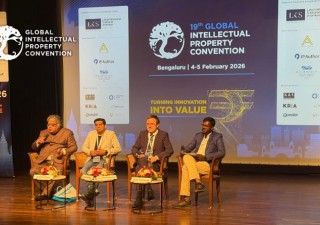Appeal to the Intellectual Property Appellate Board if the Opportunity of Hearing is not Afforded
14 November 2012

Under the Patents Act 1970, prior to amendments in 2002 and 2005, an appeal against an order of the Controller of Patents lay before the High Court, vide Section 116(2) of the earlier Act. However, when the Parliament provided for an appellate forum for redressal in IPR cases, vide Section 83 of the Trade Marks Act 1999, it notified that appeals against the orders of Controller of Patents would take place before the Intellectual Property Appellate Board. Accordingly, Chapter XIX of the 1970 Act was furnished with new provisions relating to the Appellate Board (the Board); Section 117A deals with specific instances when an appeal would so lie to the Board. One such instance is exercise of powers under Section 15 by the Controller to refuse or require amendment of an application, specification or any other document filed in pursuance thereof when they do not comply with the specified requirements.
Case Law
A recent case raised the importance of following the procedure by the Controller enumerated under the Act while exercising this power. In Novo Nordisk Health Care AG v. Assistant Controller of Patents and Designs, an appeal was preferred against the orders of Assistant Controller passed in pursuance of Section 15 before the Board. The appellant had filed the application under the PCT route. The response to the first examination report contained elaborate observations over objections on ‘novelty’ and’ inventive step’. It was also requested that an opportunity of hearing under Section 14 of the Act be afforded, if the respondent desired to take any decision adverse to appellant’s interest.
The Assistant Controller refused to proceed with the application and held that since the response to the first examination report was filed two days prior to the expiry of the stipulated period, no opportunity of hearing could be given to the appellants under Section 80, the application for which has to be filed within ten days of the expiry of the stipulated period.
The Board observed that the applicant normally should ask for an opportunity of hearing before the Controller well in advance, in case the Controller is likely to take an adverse decision against him, so that there is sufficient time for affording hearing as well as for any further communication of office action. The principle of having time limits and following the same is very essential in every legal system. It elaborated: “Time periods, are largely contained in civil and criminal procedures, rules and regulations made under the relevant law, including bilateral or multilateral conventions, are therefore viewed as procedural requirements, but partake also of the substantive law, as a right can cease to exist or not emerge in the legal sense if not processed or followed or exercised within the specified time period. It is very clear from the development of the case laws in the USPTO or EPO or the IPO, that the most important principle that runs through the cases with regard to the allowance of late filed requests is the criterion of relevance, mostly the stage involved in the proceedings makes a difference.”
However, the Board called attention to the proviso to Rule 28(2) of the Patents Rules 2003 that allows for a request for hearing to be filed within such shorter period as the Controller may deem fit in the circumstances of the case. This was held to have a bearing on the case in hand, since the Tribunal found that the appellant had made exhaustive observations for the citations made in the FER. This signified that he would have some more information to meet further objections, had he been given time to put forth his observations in an opportunity of hearing before the Controller. This act of refusal of opportunity of hearing without detailing the reasons, especially when the Controller was likely to take an adverse decision against the appellant, was termed as ‘totally violative of the law of natural justice.’
Further, the Controller is bound by procedure to give directions to the applicant to amend the specification to his satisfaction or else refuse to proceed with the application, thereby issuing a refusal order, that he has considered the observations that the applicant may make in the hearing, but they do not appear to comply with technical requirements, and also giving therein the valid and clear reasons and case laws if any, as to how those observations of the applicant/appellant do not meet the office technical requirements. Here again, the Assistant Controller in this case, had gone to the extent of not affording an opportunity of hearing to the applicant, but straight away refusing the case under Section 15 of the Act.
Comment
It is the first principle of fairness in judicial process that each party has an opportunity to answer by evidence and argument, any adverse material which the court or tribunal may take into account when forming its opinion. This principle is lame if the party does not know the substance of what is said against him, for what he does not know, he cannot answer.
LEX ORBIS Intellectual Property Practice
709/710, Tolstoy House, 15-17,
Tolstoy Marg, New Delhi - 110 001, India
T: +91 11 2371 6565
F: +91 11 2371 6556
E: mail@lexorbis.com
W: www.lexorbis.com






